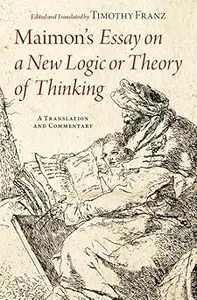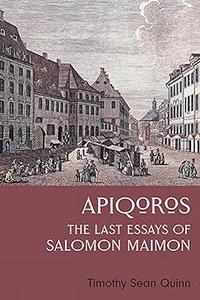
Free Download Timothy Franz, "Maimon’s Essay on a New Logic or Theory of Thinking: A Translation and Commentary"
English | ISBN: 0197658423 | 2024 | 400 pages | PDF | 161 MB
This is the first English translation of Salomon Maimon’s Essay on a New Logic or Theory of Thinking, originally published in Berlin in 1794. Maimon came from an impoverished yet culturally rich Lithuanian Jewish background to write brilliantly speculative philosophy in Germany in the immediate wake of Immanuel Kant’s revolutionary Critique of Pure Reason. His passionate search for the truth quickly led him to try to complete Kant’s conceptual system in ways that inspired Fichte’s philosophy of the transcendental self and anticipated Schelling’s and Hegel’s philosophies of the world-soul. However, Maimon grew beyond these initial ideas to develop a sophisticated philosophy of reflection. He argued that philosophical knowledge must arise from reflection on the principles of valid cognition. In the New Logic, he conducts this reflection and develops from it systematic accounts of logic, cognition, scientific methodology, and metaphysics. He presents it as a unified improvement of Kant’s
